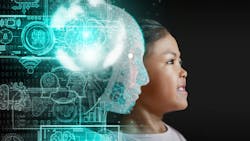Skills Gap Widens as AI Adoption Reaches 50% of Workforce
AI is transforming how work gets done, presenting both opportunities and challenges. In a recent survey, "From Adoption to Empowerment: Shaping the AI-Driven Workforce of Tomorrow," from the Society for Human Resource Management (SHRM), emphasizes the critical role of human oversight, while also underscoring the importance of upskilling and reskilling employees to harness AI's full potential.
Key findings include:
- AI adoption is rising, but disparities persist:
- While nearly 45% of U.S. workers reported using AI in their jobs, adoption rates vary significantly across generations, industries, and genders.
- Millennials lead usage at 56%, while only 25% of Baby Boomers reported engaging with AI tools.
- Improved work outcomes:
- The report found 77% of workers using AI said it helped them accomplish more in less time.
- 73% of workers said it improved the quality of their work.
- Training and upskilling are vital for success:
- More than half of workers (51%) identified enhanced training as the top priority for improving AI outcomes, underscoring the importance of workforce preparedness.
- Satisfaction with training is strongly related to successful AI adoption.
- The importance of collaboration:
- Nearly three-quarters of workers (74%) agreed AI should be a complement to human talent, while strong majorities emphasized the need for oversight and collaboration.
“As AI continues to reshape the way work is done, it’s imperative we approach its integration thoughtfully and ethically,” said Alex Alonso, SHRM chief data & analytics officer, in a statement.
Additionally, the report found the way organizations integrate AI and human intelligence (AI+HI) into business goals plays a critical role in driving satisfaction with learning and development initiatives. Among workers who rated their organization’s AI+HI integration as excellent, 97% were satisfied with training opportunities. In contrast, only 21% of those who rated integration as fair and 18% of those who rated integration as poor were satisfied with the training available to them.
With AI steadily reshaping how we work, the task of preparing the workforce becomes both urgent and complex. Organizations must implement strategies to not only drive technological integration but also to empower employees to adapt, reskill, and thrive in AI-driven environments. SHRM is committed to equipping HR professionals and organizations with the tools and insights needed to navigate this transformation successfully.
